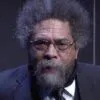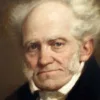I once heard an orthodox person denouncing those who discuss articles of faith. “Gentlemen,” he said naïvely, “a true Christian does not examine what he is ordered to believe. Dogma is like a bitter pill: if you chew it, you will never be able to swallow it.”
[J’ai entendu un dévot, parlant contre des gens qui discutent des articles de foi, dire naïvement: «Messieurs, un vrai chrétien n’examine point ce qu’on lui ordonne de croire. Tenez, il en est de cela comme d’une pillule amère, si vous la mâchez, jamais vous ne pourrez l’avaler.»]
Nicolas Chamfort (1741-1794) French writer, epigrammist (b. Nicolas-Sébastien Roch)
Products of Perfected Civilization [Produits de la Civilisation Perfectionnée], Part 2 “Characters and Anecdotes [Caractères et Anecdotes],” ¶ 1148 (1795) [tr. Hutchinson (1902)]
(Source)
(Source (French)). Alternate translations:I heard one day a devotee, speaking against people who discuss articles of faith, say naivement: "Gentlemen, a true Christian never examines what he is ordered to believe. It is with that as with a bitter pill; if you chew it you will never be able to swallow it."
[tr. Mathews (1878)]I once heard a pious person say naively, in arguing with people who were discussing articles of faith, "Sirs, a true Christian does not examine what he is instructed to believe. You see, it's like a bitter pill -- if you chew it, you'll never be able to swallow it."
[tr. Dusinberre (1992), ¶1148]A devout and naïve Christian was admonishing those who questioned the articles of faith. "A true Christian must never examine the things he's told to believe, gentlemen," he said. "It's like taking a pill: if you chew it, it's so bitter you'll never get it down."
[tr. Parmée (2003), ¶363]
Quotations about:
indoctrination
Note not all quotations have been tagged, so Search may find additional quotes on this topic.
Can’t you understand that if you take a law like evolution and make it a crime to teach it in public schools, tomorrow you could make it a crime to teach it in private schools, and tomorrow you may make it a crime to read about it? And soon you may ban books and newspapers. And then you may turn Catholic against Protestant, and Protestant against Protestant, and try to foist your own religion upon the mind of man. If you can do one you can do the other, because fanaticism and ignorance is forever busy and needs feeding.
Nedrick Young (1914-1968) American screenwriter and actor [pseud. Nathan E. Douglas]
Inherit the Wind, film (1960) [with Harold Jacob Smith]
(Source)
The original 1951 play was written by Jerome Lawrence and Robert E. Lee, but does not include this line, delivered in the film by Spencer Tracy. Young and Smith share the screenwriting credits.
A mind unfree, a mind possessed, dragooned, or indoctrinated, does not learn. It copies. Learning implies discovery. The unfree mind looks at maps but does not travel. It dares not. For at the edge of maps is the jumping-off place, full of dragons and sea serpents. The unfree mind stays home, locks the door, bars the shutters. It is a hero in a crowd, a coward in solitude; it is a slave and a sloth.
Whitney Griswold (1906–1963) American historian, educator [Alfred Whitney Griswold]
“Freedom, Security, and the University Tradition,” speech, Columbia University Bicentennial (1954-06-02)
(Source)
Reprinted in Griswold, In the University Tradition (1957).
I remind young people everywhere I go, one of the worst things the older generation did was to tell them for twenty-five years “Be successful, be successful, be successful” as opposed to “Be great, be great, be great”. There’s a qualitative difference.
The mind is formed by the knowledge and the direction of ideas it receives and the guidance it is given. Great things alone can make a great mind, and petty things will make a petty mind unless a man rejects them as completely alien.
[Weil der menschliche Geist durch die ihm mitgetheilten Kenntnisse und Ideenrichtungen erzogen wild. Nor das Grosse kann ihn grostartig, das Kleine nur kleinlich machen, wenn er et nicht wie elwas ganz Fremdes ganz von sich stösst.]
Karl von Clausewitz (1780-1831) Prussian soldier, historian, military theorist
On War [Vom Kriege], Book 2, ch. 2 “On the Theory of War [Über die Theorie des Krieges],” § 40 (2.2.40) (1832) [tr. Howard & Paret (1976)]
(Source)
(Source (German)). Alternate translations:The human mind is trained by the knowledge imparted to it, and the direction given to its ideas. Only what is great can make it great; the little can only make it little, if the mind itself does not reject it as something repugnant.
[tr. Graham (1873)]The human mind is formed by the kinds of knowledge imparted to it and the direction given to its ideas. Only what is great can make it great; the little can only make it little, if the mind itself does not reject it as something repugnant to it.
[tr. Jolles (1943)]
Never try to reason the prejudice out of a man. It was not reasoned into him and cannot be reasoned out.
Sydney Smith (1771-1845) English clergyman, essayist, wit
(Attributed)
Variant: "Never try to reason the prejudice out of a man. It was never reasoned into him and it never can be reasoned out of him."
Widely attributed to Smith, but not found in his works. On occasion cited to his Elementary Sketches of Moral Philosophy, but not found there. Most likely a variation or misattribution of this Jonathan Swift quotation.
What happens when a state tries to purge its state universities or a community tries to purge its public schools of alleged subversives? […] What happens is the demoralization and eventual corruption of the school system. This is not a momentary or even temporary affair; it is something the consequences of which may be felt for years. The search for subversives results in the intimidation of the independent, the original, the imaginative, and the experimental-minded. It discourages independence of thought in teachers and students alike. It discourages the reading of books that may excite the suspicion of some investigator or some Legionnaire. It discourages the discussion of controversial matters in the classroom, for such discussion may be reported, or misreported, and cause trouble. It creates a situation where first-rate minds will not go into teaching or into administration and where students therefore get poor teaching. In the long run it will create a generation incapable of appreciating the difference between independence of thought and subservience. In the long run it will create a generation not only deprived of liberty but incapable of enjoying liberty.
Henry Steele Commager (1902-1998) American historian, writer, activist
“Free Enterprise in Ideas,” Freedom, Loyalty, Dissent (1954)
(Source)
Originally published in the Saturday Review (1952), based on a speech to the Advertising Council's American Round Table, New York City (1951).
For the fascist, schools and universities are there to indoctrinate national or racial pride, conveying for example (where nationalism is racialized) the glorious achievements of the dominant race.
Jason Stanley (b. 1969) American philosopher, epistemologist, academic
How Fascism Works: The Politics of Us and Them, ch. 4 (2018)
(Source)
What is blasphemy? I will give you a definition; I will give you my thought upon this subject. What is real blasphemy?
To live on the unpaid labor of other men — that is blasphemy.
To enslave your fellow-man, to put chains upon his body — that is blasphemy.
To enslave the minds of men, to put manacles upon the brain, padlocks upon the lips — that is blasphemy.
To deny what you believe to be true, to admit to be true what you believe to be a lie — that is blasphemy.
To strike the weak and unprotected, in order that you may gain the applause of the ignorant and superstitious mob — that is blasphemy.
To persecute the intelligent few, at the command of the ignorant many — that is blasphemy.
To forge chains, to build dungeons, for your honest fellow-men — that is blasphemy.
To pollute the souls of children with the dogma of eternal pain — that is blasphemy.
To violate your conscience — that is blasphemy.
The jury that gives an unjust verdict, and the judge who pronounces an unjust sentence, are blasphemers.
The man who bows to public opinion against his better judgment and against his honest conviction, is a blasphemer.
Robert Green Ingersoll (1833-1899) American lawyer, agnostic, orator
Speech to the Jury, Trial of C. B. Reynolds for Blasphemy, Morristown, New Jersey (May 1887)
(Source)
Beware:
All too often,
We say
What we hear others say.
We think
What we’re told that we think.
We see
What we’re permitted to see.
Worse!
We see what we’re told that we see.
Repetition and pride are the keys to this.
To hear and to see
Even an obvious lie
Again
And again and again
May be to say it,
Almost by reflex
Then to defend it
Because we’ve said it
And at last to embrace it
Because we’ve defended it
And because we cannot admit
That we’ve embraced and defended
An obvious lie.Thus, without thought,
Without intent,
We make
Mere echoes
Of ourselves —
And we say
What we hear others say.Octavia Butler (1947-2006) American writer
Parable of the Talents, ch. 18, epigram (1998)
(Source)
Internally cited to the book's scripture, Earthseed: The Books of the Living,, and to a poem, "Warrior," written by the protagonist's uncle, Marcos Duran.
But your spiritual teachers caution you against enquiry — tell you not to read certain books; not to listen to certain people; to beware of profane learning; to submit your reason, and to receive their doctrines for truths. Such advice renders them suspicious counsellors. By their own creed, you hold your reason from their God. Go! ask them why he gave it.
Frances "Fanny" Wright (1795-1852) Scottish-American writer, lecturer, social reformer
A Course of Popular Lectures, Lecture 3 “Of the more Important Divisions and Essential Parts of Knowledge” (1829)
(Source)
There is no absurdity, however palpable, which cannot be firmly implanted in the minds of all, if only one begins to inculcate it before the early age of six by constantly repeating it to them with an air of great solemnity.
[Es giebt keine Absurdität , die so handgreiflich wäre , daß man sie nicht allen Menden fest in den Kopf regen könnte, wenn man nur schon vor ihrem sechsten Jahre anfienge, sie ihnen einzuprägen, indem manunabläffig und mit feierlichstem Ernst sie ihnen vorsagte.]
Arthur Schopenhauer (1788-1860) German philosopher
Parerga and Paralipomena, Vol. 2, ch. 26 “Psychological Observations [Psychologische Bemerkungen],” § 344 (1851) [tr. Payne (1974)]
(Source)
(Source (German)). Alternate translations:There is no absurdity so palpable but that it may be firmly planted in the human head if you only begin to inculcate it before the age of five, by constantly repeating it with an air of great solemnity.
[tr. Saunders (1851)]There is no absurdity, however palpable it may be, which may not be fixed in the minds of all men, if it is inculcated before they are six years old by continual and earnest repetition.
[tr. Dircks(1897)]
We are all tattooed in our cradles with the beliefs of our tribe; the record may seem superficial, but it is indelible. You cannot educate a man wholly out of the superstitious fears which were early implanted in his imagination; no matter how utterly his reason may reject them, he will still feel as the famous woman did about ghosts, Je ne crois pas, mais je les crains, — “I don’t believe in them, but I am afraid of them, nevertheless.”
You may call me an agnostic, but I do not share the crusading spirit of the professional atheist whose fervor is mostly due to a painful act of liberation from the fetters of religious indoctrination received in youth. I prefer an attitude of humility corresponding to the weakness of our intellectual understanding of nature and of our own being.














